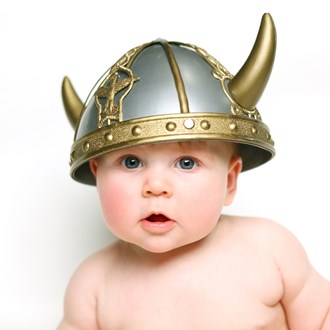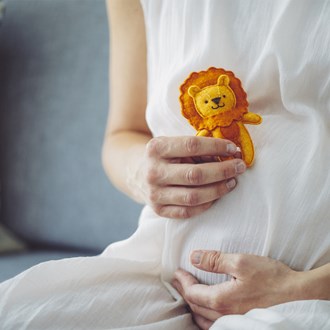Post-birth surprises and recovery

Wondering what will happen to your body after giving birth? Find out here...
By Practical Parenting
November 14 2016
A after nine months of morning sickness, backache and an ever- expanding belly, unfortunately the toll on a mum’s body doesn’t all end the minute bub pops out.
After what it’s been through, it’s very unrealistic to expect it to ping back to normal immediately after the birth, and both your body and mind need time to recover and adjust.
Recovering from a vaginal birth is usually the most straight forward, and the more births you’ve had, the quicker your body gets better. If it’s your first baby, you’ll be tired from the physical aspect of labour and feel bruised and exhausted like you’ve just completed a marathon. What you need most is rest.
A caesarean is a slightly different ball game. The operation is major surgery, which means your body will take longer to heal. You’ll stay in hospital for around three to four days, but as early as day one you’ll be encouraged to get up and about as this will assist with
your recovery.
You’ll be given strong pain medication while in hospital, but most women manage at home on paracetamol. Bracing your belly with a pillow or your hands when coughing, sneezing or laughing is advised to support the wound. And you should try to avoid any undue straining and lifting, other than your baby, fox the next six weeks.
Blood loss
Following both a vaginal and caesarean birth you’ll bleed from the vagina. This blood loss is called lochia. For the first week it will be red and similar to a period, then it turns brown and lasts a further few weeks or more. If you fin you’re soaking a pad with red blood every hour or so or if there’s any pain associated with the bleeding, then you’ll need to consult your caregiver.
It still hurts
After the birth you’ll most likely experience after pains as your uterus contracts and shrinks back down to its pre-pregnant size. The more babies you’ve had, the more sever the pains will be. They’re most noticeable when you’re breastfeeding as the baby sucking at the breast releases oxytocin, the hormone that stimulates the uterus to contract. The pains are usually strong for 24 to 48 hours and then become less intense over the next few weeks. You can take some paracetamol before feeds to help with the pain and some women find warm packs and drinking ginger or camomile tea helpful.
Cuts and tears
Whatever your trauma down there, it may make you want to avoid too much physical activity, but it's important to keep moving as this encourages the blood circulation to the area and speeds up healing. There's no specific treatment for tears, just keep yourself clean and change your pads frequently. Pelvic floor exercises are helpful and using an air ring or pillows can help you feel more comfortable when you're sitting down. By six weeks, and often sooner, perineal tears and episiotomy stitches should be well healed, although some pain may still be experienced for a few months.
Bathroom worries
If you have stitches or grazes it's helpful to run some warm water over yourself while urinating to reduce any stinging. Some women experience some incontinence after birth and it's important to consult a physio and begin your pelvic floor exercises as soon as possible. Another common issue during and after pregnancy are haemorrhoids. These are swollen or varicose veins protruding from the anus and are caused by the pressure on the pelvic floor from the pregnancy and birth. Take warm shallow baths for relief, avoid constipation and try some of the over-the-counter haemorrhoid preparations from you chemist. Once the weight of the pregnancy and the hormones are gone, the haemorrhoids will disappear.
Body and mind
Every woman is different regarding how long it takes for her belly to get back to normal. Don't fret, be sensible with your diet and exercise, and you'll slowly lose those extra kilos. Both emotionally and physically go easy on yourself, and take one day at a time. Couple with the tiredness and all the hormones in your system, it’s common to feel very emotional after giving birth. If you had a traumatic labour this may be on your mind and you need to talk about it. Talk about the birth and what worried you with your partner, support people and your caregiver as this often helps.
Finally, as well as your baby, look after yourself! Eat healthy foods, gradually get back into exercise and get plenty of rest. Don’t forget your sense of humour as it will get you through those tricky early days!






